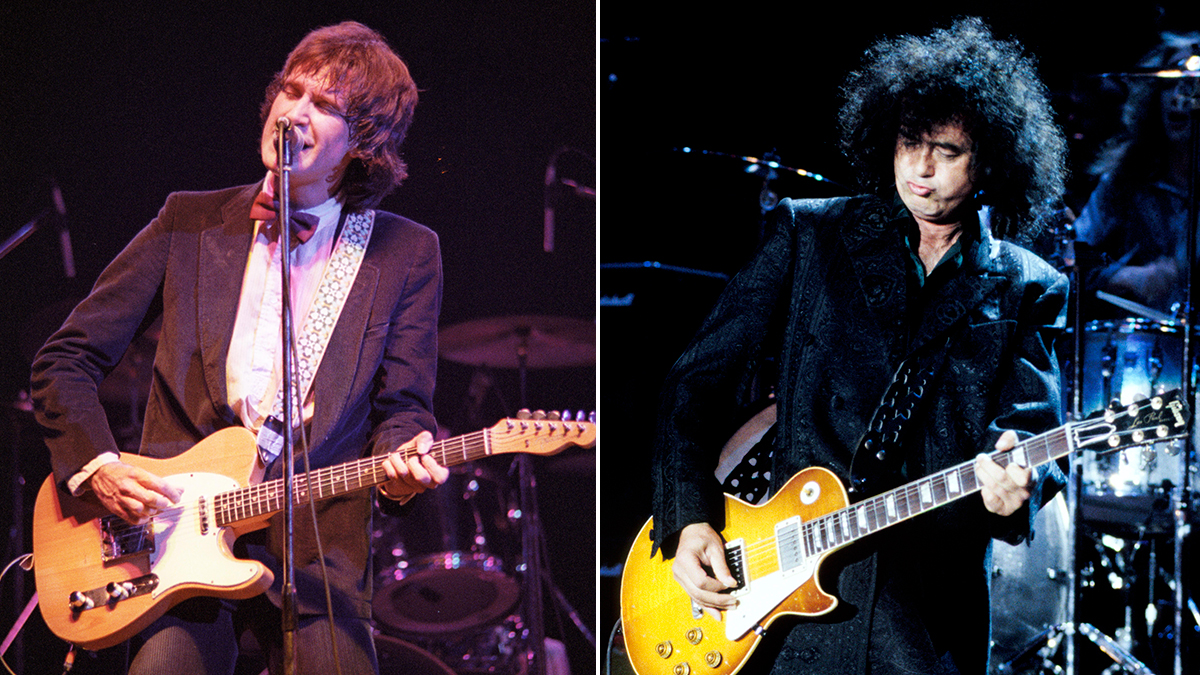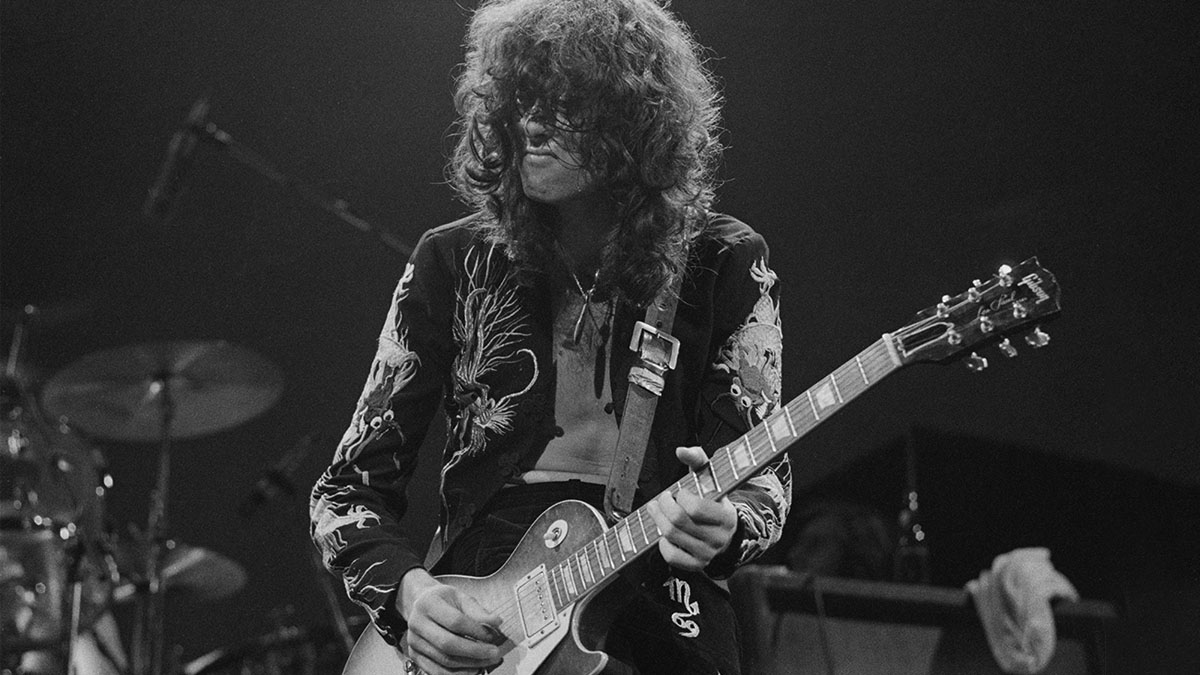“There’s some contention about that, but that’s how I remember it”: Eddie Kramer says Jimmy Page did play on The Kinks’ You Really Got Me – but it might not have been the version we know today
The decorated rock producer has recalled the first time he crossed paths with Page, who was busy recording an overdub for the 1964 hit

The Kinks’ You Really Got Me is one of the greatest rock songs ever committed to tape, but the history surrounding its actual recording is the subject of some intense debate.
One key issue surrounds the 1964 hit: namely, whether Jimmy Page – a budding session musician at the time – played on the song.
While some suggest he was merely involved in the recording of the song, others argue he is responsible for the song’s guitar tone and solo. Some high-profile names – including Deep Purple’s Jon Lord – have supported these theories.
Most of these tales, though, have been refuted by individuals involved in the recording of the track, including Kinks guitarist Dave Davies, producer Shel Talmy, and even Page himself.
However, speaking in the latest issue of Guitar World, legendary rock producer Eddie Kramer – who was present during the session in question – reignited the debate by offering his own recollection of the event, in which he says he saw Page recording parts for You Really Got Me.
“I met Jimmy while he was working with the Kinks in the early ’60s when they were doing You Really Got Me,” he explains. “I recall seeing Jimmy coming in and doing an overdub on that song. There’s some contention about that, but that’s how I remember it.”
Kramer’s recollections of the events surrounding the recording of You Really Got Me are bound to be met with some strong opposition, owing to the fact the Davies brothers themselves have gone on record to state that Page did not play on the track.
Get The Pick Newsletter
All the latest guitar news, interviews, lessons, reviews, deals and more, direct to your inbox!
Back in 2014, Dave Davies posted to social media to call out “lies” told by the BBC, which, in a Radio 2 documentary, alleged Page had indeed played on You Really Got Me.
In a statement (via Rolling Stone), Davies sought to set the record straight, categorically denying Page’s involvement and saying he “invented the distorted guitar sound and played the solo on You Really Got Me and Ray Davies played rhythm guitar”.
Davies isn’t the only one involved in the track to debunk the Page debate. You Really Got Me producer Talmy, likewise, once told The Guardian, “We used Jimmy Page on some Kinks stuff so Ray didn't have to play rhythm guitar as well as sing – but, contrary to myth, Jimmy didn't play on You Really Got Me.”
And, just to really hammer home the point, Page himself told SiriusXM (via Rolling Stone), “This is a result of internet meddling and muddling. I wasn’t on You Really Got Me, but I did play on the Kinks’ records.
“That’s all I’m going to say about it. But every time I do an interview, people ask me about You Really Got Me. So maybe somebody can correct Wikipedia so people won’t keep asking me.”
It’s important to note that Kramer says this is only how he ‘remembers’ the recording of the track – and it’s not the first time he’s offered a similarly worded response to the You Really Got Me myth, either.
Back in 2021, he told The French Connection (via Ultimate Guitar), “I was on the session, I think it was him, I thought it was Jimmy. Jimmy Page says no, so maybe it was Dave [Davies]. In my head, it was him [Jimmy], but you know, it's a long time ago.”
It’s also worth noting that Kramer recalls Page recording an overdub, rather than the rhythm part or the solos. What overdub this was, Kramer didn’t say, but it suggests Page’s role may have been minor, and perhaps as such subject to easy misinterpretation.
That makes for interesting reading, especially when Ray Davies’ own comments concerning the track are considered. Though he rejected reports that Page played a major rhythmic or lead role on the recording of the track, he did reveal there may have been a version of the song that did feature Page – just not the one that ended up getting released.

“The [version] of You Really Got Me that was actually released was the third [recording],” Davies said in Ritchie Yorke’s book, Led Zeppelin: The Definitive Biography (via Sound on Sound). “There was a demo thing with Dave playing lead, a second cut which may have had Jimmy Page on it (and which Pye Records still have in their vaults) and a third which definitely had Dave on it.
“I know because I was standing right next to him when he played on it. And that's the one which was released.”
So, did Kramer see Page while he was tracking for an unreleased demo of You Really Got Me that was shelved in favor of one that didn’t include his contributions? We may never know. As we say, the history surrounding the track is pretty murky.
The theory of The Other You Really Got Me, though, looks to have legs, and could go a long way to clearing up the confusion that clouds the history of the song.
Head over to Magazines Direct to pick up the latest issue of Guitar World, which features the full interview with Eddie Kramer and a cover feature with Mick Mars.
In other Jimmy Page-related news, it was recently announced that the Led Zeppelin legend had partnered with Gibson for a multi-guitar signature series, which will kick off with a recreation of his EDS-1275 double-neck.

Matt is the GuitarWorld.com News Editor. He has a Masters in the guitar, a degree in history, and has spent the last 16 years playing everything from blues and jazz to indie and pop. When he’s not combining his passion for writing and music during his day job, Matt records for a number of UK-based bands and songwriters as a session musician.
“I was in a frenzy about it being trapped and burnt up. I knew I'd never be able to replace it”: After being pulled from the wreckage of a car crash, John Sykes ran back to his burning vehicle to save his beloved '76 Les Paul
“His songs are timeless, you can’t tell if they were written in the 1400s or now”: Michael Hurley, guitarist and singer/songwriter known as the ‘Godfather of freak folk,’ dies at 83











